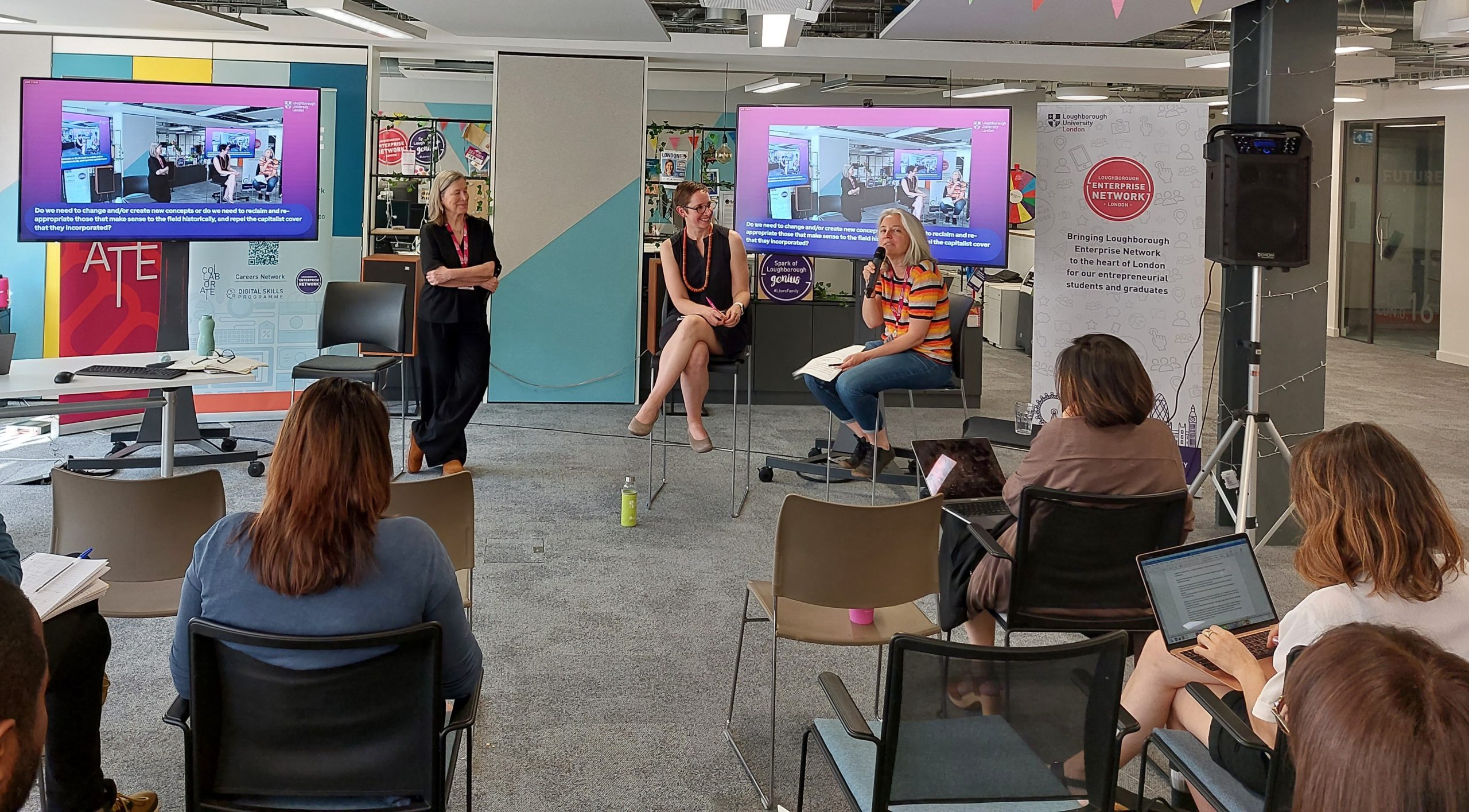Noske-Turner, J. & Enghel, F. (2023, June 13). Unmaking to Remake: A conversation on the place of care in communication for social change research [Video]. YouTube. https://www.youtube.com/watch?v=46DHOtRbAV8
The starting position of Un/Making CSC project is that the current development landscape reframes social change work requiring entrepreneurialism. At the recent launch event for this project my opening presentation traced my journey from scepticism that there was any compatibility between communication for social change and social entrepreneurialism, to my current analysis of the ways the ‘new spirit of development’, heavily informed by Boltanski and Chiapello’s (2018) new spirit of capitalism, is influencing practices of communication for social change.
The subtitle the launch event, convened with Ass. Prof. Flor Enghel and with Prof. Jo Tacchi as a discussant (who are both also Project Advisory Group members), was ‘A conversation on the place of Care in communication for social change research’. Bringing care into the conversation powerfully reframes this social change and activism work, not as entrepreneurial, but rather in terms of care and caretaking. In their Care Manifesto, Chatzidakis, Hakim, Litter, & Rottenberg (2020) diagnose that a “profound lack of care on a global scale has also created a world that is in itself in crisis” (p 40).
In her talk at the event, Flor describes both the precarity and the toll of care and activism work as experienced by the women she interviewed:
“The women I spoke with, regardless of their socioeconomic situation, are constantly so busy doing care work, and struggling to improve the quality of their lives and the lives of their loved ones against increasing precarity, that they never have time for themselves…. They do not, they cannot, stop.”
(51.28 – 51:54)
She goes onto to explore not just on parallels between the exhaustion of caring activists, but also turned the mirror to understand this through her own reflected experience:
“Note that “being pressed for time” and “not having a chance to feel one’s one tiredness” are a commonality -even if with different characteristics- between researcher me, whose time is abused by design by the system that employs me, and my interviewees… The difference is that my situation was nonetheless more privileged than theirs.”
(28:31-38:59)
This gives pause for thought now that I am six weeks short weeks away from my first round of fieldwork. Preparatory calls with partners are dotted with references to a constantly busy schedule, endless meetings with funders, working until 2am, never taking holidays.
This indicates a dangerous acceleration that the new spirit can wrap around care work. Although Chatzidakis, Hakim, Litter, & Rottenberg argue that a politics of care is fundamentally irreconcilable with capitalist market logics, learning from Boltanski and Chiapello we should not be surprised to see this very contemporary anti-capitalist critique itself being absorbed by a spirit of capitalism just as easily as those before.
In this way, the new spirit normalises not just boldness, creativity and tenacity, but also feeds off passion and care to demand more time and more energy in the name of productivity. Exhaustion then is one of the defining symptoms of the new spirit in care clothing.
The generous commitment already shown by my research partners to make time for my research activities only increases my sense of pressure to deliver something useful, to make sure the partnership has some semblance of mutuality. This will require prioritizing care over productivity.
It seems likely that care will recur as a generative concept throughout this work, as a possible conceptual antidote, at different scales, to the exhausting and depleting capitalist logics under study, but also with attention to its susceptibility to becoming entwined with the very logics it seeks to remedy.
Feature image courtesy of Ronan Lee
References:
Boltanski, L., & Chiapello, E. (2018). The new sprit of capitalism (2nd ed.). London, UK: Verso Books.
Chatzidakis, A., Hakim, J., Litter, J., & Rottenberg, C. (2020). The care manifesto: The politics of interdependence. Verso Books.
